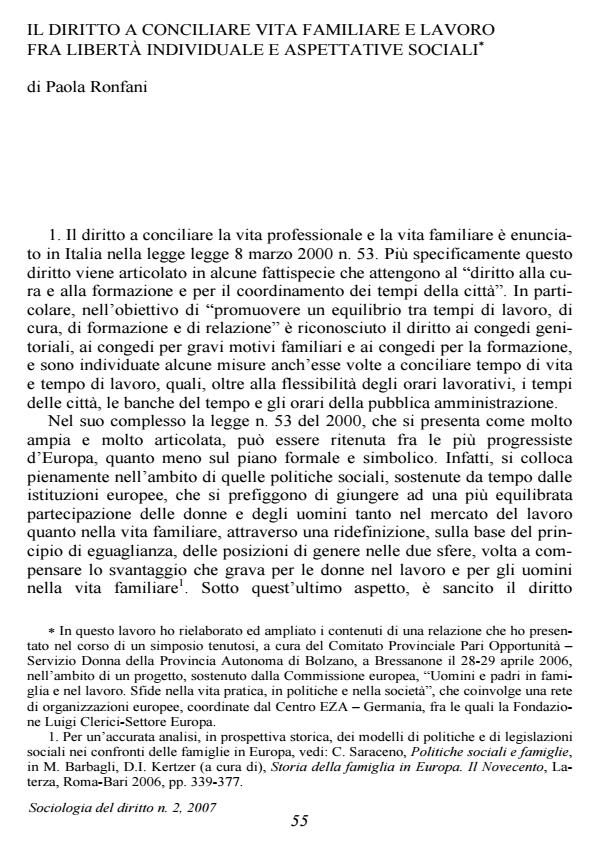Il diritto a conciliare vita familiare e lavoro fra libertà individuale e aspettative sociali
Journal title SOCIOLOGIA DEL DIRITTO
Author/s Paola Ronfani
Publishing Year 2007 Issue 2007/2
Language Italian Pages 15 P. 55-69 File size 69 KB
DOI
DOI is like a bar code for intellectual property: to have more infomation
click here
Below, you can see the article first page
If you want to buy this article in PDF format, you can do it, following the instructions to buy download credits

FrancoAngeli is member of Publishers International Linking Association, Inc (PILA), a not-for-profit association which run the CrossRef service enabling links to and from online scholarly content.
The Right to Reconcile Family Life and Work: A Case Study of How Individual Freedom Relates to Social Expectations ABSTRACT: In Italy, the right to reconcile one’s professional life with one’s family life was declared in 2000, in a very sweeping and detailed law (N° 53) that comes under the heading of the social policies sustained for some time by the European institutions, whose aim is to enact a series of measures, including paternity leave, to achieve a better balanced participation of women and men, both in the working world and in the activities involved in caring for the family. As it is cited in European document mission statements in particular, the right of reconciliation is dual in nature: it is both a social right and an individual right of freedom, as its application ought to enable women and men to live out their personal relationships in both their public and their private lives. Moreover, insofar as it concerns the relations between social caregivers and social beneficiaries (between parents and their children, for example, but also the older or disabled members of the family), it can also be included under the heading of rights of relationship. The article underscores the almost magical nature of the right of reconciliation, which aims to cater for a very wide range of very different expectations, highlighting the risk that it may be used to transform social problems into individualised legal problems. Specific attention is then paid to its subjective dimension, as a right in everyday life, when elements of conflict become relevant, as its enactment calls for a rather radical redefinition of gender roles in housework and in caring.
Paola Ronfani, Il diritto a conciliare vita familiare e lavoro fra libertà individuale e aspettative sociali in "SOCIOLOGIA DEL DIRITTO " 2/2007, pp 55-69, DOI: